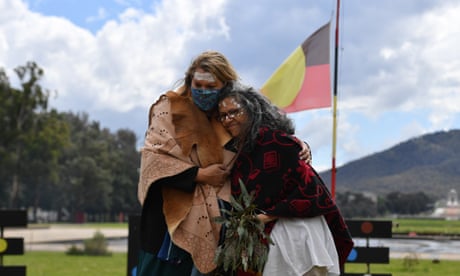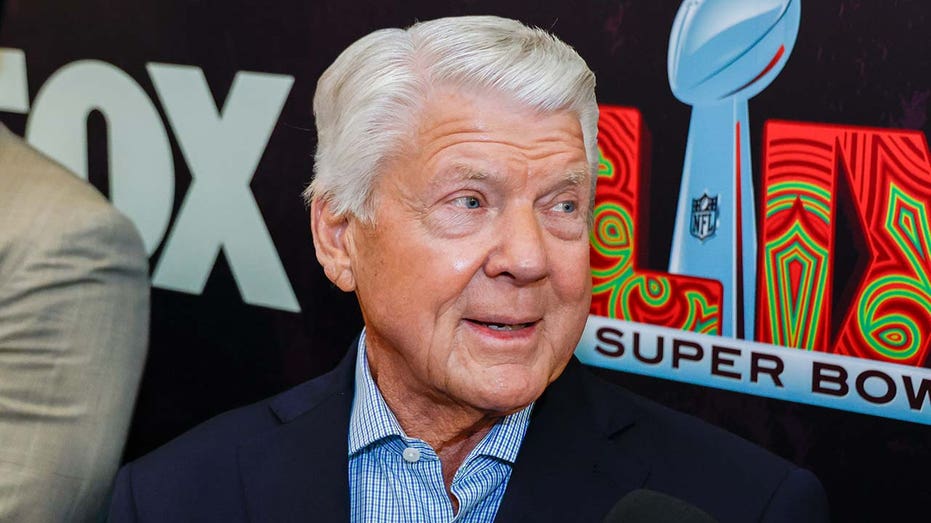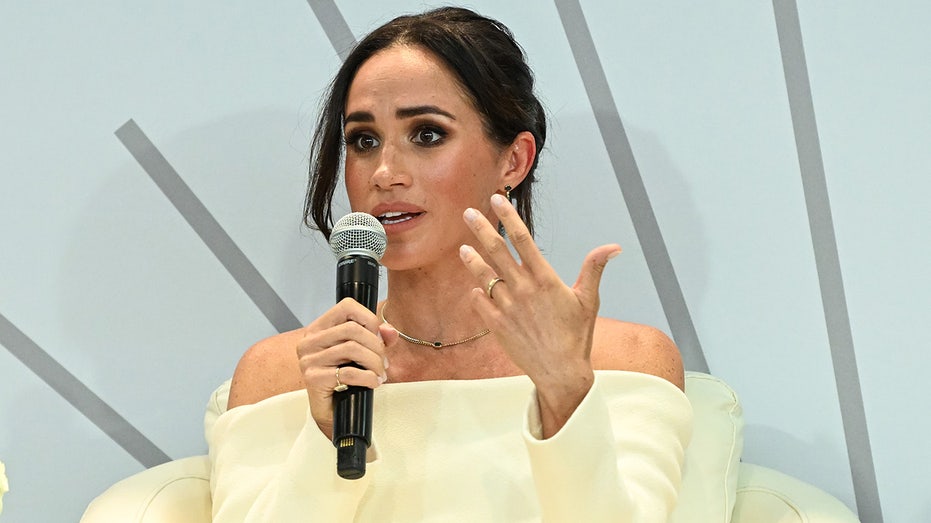- by foxnews
- 04 Mar 2025
‘Blak Greens’ say they won’t support Indigenous voice without treaty negotiations
‘Blak Greens’ say they won’t support Indigenous voice without treaty negotiations
- by theguardian
- 15 Jan 2023
- in news

The Greens' First Nations advisory group has laid out its conditions for supporting the voice to parliament, saying it must be subject to treaty negotiations with the government.
Pending further negotiations with the government, the Greens are holding out on explicitly supporting the looming referendum, wanting further progress on all three elements outlined in the Uluru statement from the heart: truth, treaty and voice.
Tjanara Goreng Goreng, a national co-convenor of the Greens' First Nations Network, which informs the party's policy on Indigenous matters, called on the government to include discussion of Indigenous sovereignty in the voice referendum.
"My view is the voice, as recognised in the constitution, will not provide what First Nations people have been asking for for a long time," she said.
"We've always fought for our rights: human rights and rights to land. Our rights to land and country are about the recognition of prior sovereignty. Truth, treaty and voice as we've laid it out might be more difficult to do, but it's more transformative for our country."
Last week the Greens' First Nations spokeswoman, senator Lidia Thorpe, outlined the party's position to the Nine newspapers.
"We don't support a no campaign, we don't support a yes campaign until we see Labor action those recommendations that save our people's lives and provides a guarantee that our sovereignty won't be ceded," she said.
Thorpe said her position on the voice was being guided by the Greens' First Nations group, commonly known as the Blak Greens. Its convenors are Goreng Goreng, a Wakka Wakka woman, who was a Greens Senate candidate at the May election; and Dominic Wy Kanak, a Torres Strait Islander man and councillor on Sydney's Waverley council.
Guardian Australia understands Thorpe's reluctance to publicly back the voice has upset some Greens members, with concerns raised by some that the party should not line up alongside conservative politicians to oppose the change.
Last week, the acting Greens leader, Larissa Waters, told Guardian Australia the party wanted to see "progress on all elements" of the Uluru statement during its negotiations with the government and the implentation of recommendations of reports into Indigenous deaths in custody and the stolen generations.
"Our negotiations with the government are aimed at encouraging ambitious plans for truth and treaty, and once we have more clarity on these, our party room will be able to discuss and take a formal position," she said.
Sources inside the yes campaign for the referendum believe most Greens politicians will eventually back the voice.
Goreng Goreng and Wy Kanak stressed that the final position would be reached by the Greens party room, but that while the Blak Greens backed a voice, they wanted it done differently.
"Of course [Labor] are entitled to put forward what they feel they can do in the time of their government. And we will put forward our view."
Wy Kanak said: "We support the establishment of a national First Nations voice, but it's got to be determined by First Nations people and it's got to be subject to treaty negotiations."
The Uluru statement sets out a sequential pathway of voice, treaty and truth. The Greens policy is pointedly named "truth, treaty, voice".
Eddie Synot, senior engagement officer with the Uluru Dialogue and lecturer in constitutional law at Griffith University and the University of New South Wales, said the statement purposely set out that order. He said this was agreed upon by First Nations representatives in the Uluru dialogue process, with voice intentionally coming first to help underpin future truth and treaty processes.
"Voice is first because we need that constitutional linchpin," Synot said.
"If we want treaty negotiations in future, and a government that doesn't like [the voice] decides to discontinue it, we've got nothing. No voice means no permanent change in the structure."
Synot acknowledged some First Nations people did not agree with the approach, but that it had been agreed through consensus. He said a treaty was "massively important" and a long-term goal, but sovereign-to-sovereign negotiation would be "impossible".
"As far as Indigenous people are concerned, we've never ceded our sovereignty, but we have to face up to the political and legal reality," he said.
"Voice is the key. It matters for changing the culture and power of decision-making. We're always present, you can't ignore us."
The Blak Greens maintain they want progress towards recognition of Indigenous sovereignty. Wy Kanak noted sovereignty was mentioned numerous times in the Uluru statement.
"There's no shortage of examples for the government of today to look at for reference points for how Australia will recognise sovereignty of its Indigenous people," he said, citing treaty-making in New Zealand and Canada.
Goreng Goreng said the Greens MPs would settle their final position, but she welcomed her party continuing "right to the end of the negotiating path".
"Our view is a voice should be established, it's the way in which it's done. It has to be done properly," she said.
"Our view as the Blak Greens is we'd want our party to negotiate this as much as possible, to get the best outcome for First Nations people saying 'our sovereignty is the most important thing for us'."
Echoing concerns from critics of the voice, including Peter Dutton and other Coalition MPs, Goreng Goreng said: "There's no detail about what the voice will look like. It makes it difficult to vote for something you don't know about."
The prime minister, Anthony Albanese, has repeatedly said the voice would be "subservient" to parliament, stressing it would not have a veto power and could be amended by the government of the day.
Thorpe was critical of those comments on Tuesday, tweeting a link to an article and commenting: "This is why Voice without Treaty is weak. Only a Treaty can give First Nations people the power to negotiate with the Govt as equals.
"Entrenching subservience in the constitution is gammin. First Nations people are, and will always be, Sovereign people."
Two hours before Thorpe's tweet, the party leader, Adam Bandt, wrote on Facebook that the Greens wanted "progress on all elements of the Uluru Statement".
"Now is the time for the Labor Government to have some ambition. Treaty now."
- by foxnews
- descember 09, 2016
Bus travel sees 'steady growth' as flyers seek alternative transportation
People who ride on airplanes might rely on alternative transportation for a number of reasons. A CEO of a bus travel company shares insights with Fox News Digital.
read more


